Can goats eat kale? While kale is safe for goats in small quantities, the answer is more complex. Kale is a healthy leafy green packed with nutrients, and goats can benefit from it.
However, kale is also high in oxalates, which can bind to calcium and other minerals in the body and cause health problems. For this reason, it’s vital to feed kale to goats in moderation and ensure they have access to other sources of calcium, such as hay or mineral supplements.
While kale is technically safe for goats to eat, there are a few things you should know before feeding it to your furry friend. This article will cover everything you need to know about feeding kale to goats, including the benefits and risks.
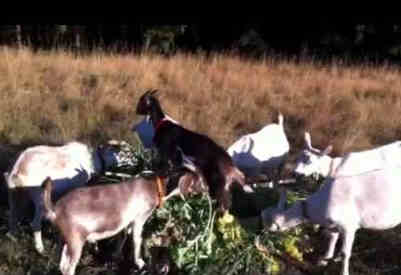
Can goats eat kale?
Kale is an excellent source of vitamins A, C, and K and minerals like iron and calcium. It’s also high in fiber and antioxidants. For these reasons, kale is often lauded as a superfood. So, it stands to reason that feeding kale to your goat would give them a nutritional boost, right?
One thing to consider is that kale is pretty high in oxalates. Oxalates are compounds that bind to minerals like calcium and prevent them from being absorbed by the body. Eating large amounts of kale can cause health problems in goats by preventing them from getting the nutrients they need.
So, should you avoid feeding kale to your goat altogether? Not necessarily. While kale may not be the nutritional powerhouse for goats that it is for humans, it’s still a healthy food for them to eat in moderation. Just be sure to supplement their diet with other healthy foods like hay, grass, and pellets, so they’re getting all the nutrients they need.
[GoatAffiliate]
Is kale toxic to goats?
While it’s true that kale can be a nutritious addition to their diet, it’s important to remember that too much of a good thing can be harmful. Kale contains glucosinolates and oxalates, which can build up in a goat’s system and lead to health issues if consumed in large quantities.
However, this doesn’t mean that you should avoid feeding kale altogether. As with any new food, introduce it gradually and monitor your goat’s reaction. In moderation, kale can provide a tasty and nutritious treat for your four-legged friends.
Just be sure not to let them gorge on it, as with any food. And always have a diverse range of plants in their diet for optimal health.
The benefits of eating kale for goats
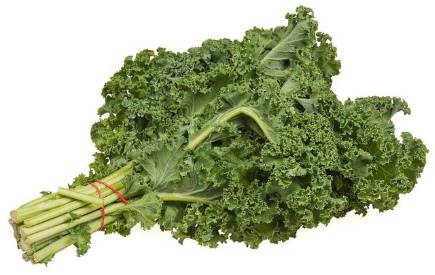
Like most goat owners, you want to do everything possible to ensure your goat is healthy and happy. One way to do that is by giving them nutrient-rich food to help them grow and thrive. And one of the best foods you can give your goat is kale. Here are five reasons why kale is so good for goats.
A great source of vitamins and minerals
Goats need a variety of vitamins and minerals to stay healthy, and kale is loaded with them. Just a few of the nutrients in kale include vitamins A, C, and K, calcium, iron, and magnesium.
Adding kale to your goat’s diet, you’re helping them get the nutrients they need to stay strong and healthy.
Packed with antioxidants
Antioxidants protect cells from damage, and kale is full of them. Kale has more antioxidant power than almost any other food out there.
That means feeding your goat kale can help keep their cells healthy – and may even help prevent some diseases.
Can help improve digestion
Kale is high in fiber, which can help goats digest their food better and may even reduce the risk of some digestive issues.
Additionally, the antioxidants in kale can help protect against gut inflammation – another common digestive issue in goats.
Can boost immunity
The vitamins and minerals in kale play an essential role in supporting immunity, and the antioxidants in kale can also help fight off infections. So if you’re looking for a food that will help keep your goat healthy, kale is a great option.
Easy to find and relatively inexpensive
Unlike some other nutrient-rich foods, kale is widely available and relatively affordable – making it easy to give your goat the nutrition they need without breaking the bank.
Things to watch out for when feeding kale to goats
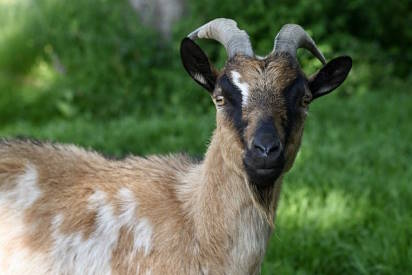
Kale is a healthy, leafy green vegetable often recommended as part of a goat’s diet. However, there are a few things you need to watch out for when feeding kale to your goats. Here are three of the most important things to keep in mind.
Too Much Glucosinolates Can Damage Red Blood Cells
Glucosinolates are compounds that are found in kale and other leafy green vegetables. They benefit goats in moderate amounts, but too much can damage red blood cells. This can lead to anemia, which can be fatal if not treated promptly. Contact your veterinarian immediately if you notice your goats acting tired or lethargic.
Watch Out For Pesticides
Pesticides can be harmful to goats if ingested in large quantities. Choose organic kale whenever possible to reduce the risk of pesticide exposure. You can also wash the kale thoroughly before feeding it to your goats.
Feed In Moderation
Kale is a nutrient-rich food, but you should feed it in moderation like anything else. Goats that eat nothing but kale can develop health problems such as bloat and scours (diarrhea). A diet that includes hay, grass, and other fresh vegetables is best for goats of all ages.
How often should goats eat kale?
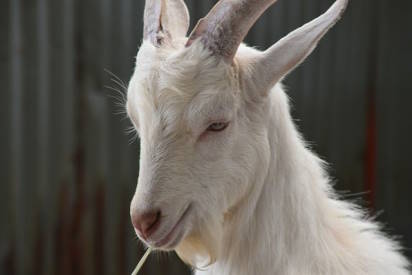
When it comes to feeding kale to goats, moderation is key. This leafy green is a good source of vitamins and minerals, but it can also be high in oxalates, which can cause health problems if consumed in large quantities.
Generally, goats should eat kale only once or twice per week. If your goats are starting to eat more kale than usual, it’s best to cut back on their kale supply and offer them other healthy snacks instead.
How to prepare kale for feeding to goats
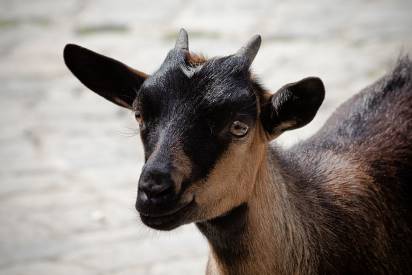
Not all goats enjoy eating kale in its raw, leafy form. If your goat is one of those fussy eaters, there are a few things you can do to make kale more palatable. Read on to learn more about the dos and don’ts of feeding kale to goats.
Keep It Plain
One of the simplest things you can do to make kale more appealing to your goat is to keep it plain. This means no added salt, spices, or dressings. Goats are notoriously picky eaters, so it’s best not to try anything too fancy or novel.
Don’t overcook It
It’s important not to overcook kale when preparing it for your goat. Kale that is overly wilted or mushy is less likely to be eaten by goats. Lightly steaming or boiling kale leaves until they are bright green and slightly soft is usually enough to make them more appealing to goats. However, if your goat still refuses to eat cooked kale, you may want to try serving it raw.
Add Some Fruit
If your goat doesn’t seem interested in eating kale, you can try adding some fruit to the mix. Goats love sweet things, so adding a handful of raisins or chopped-up apples can make kale more enticing. Just be sure not to add too much fruit, as too much sugar can lead to digestive issues in goats.
Can baby goats eat kale?
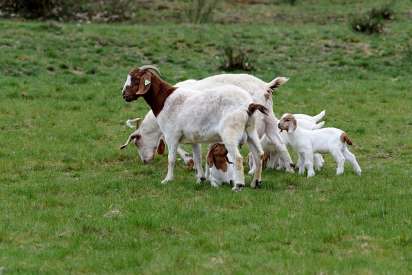
Goats are known for their love of greens, but that doesn’t mean all greens are suitable. Baby goats, in particular, have sensitive stomachs and can only tolerate a limited variety of plants. Kale is one food that you should avoid until baby goats are at least 2 months old.
Even then, they should only eat a small amount, as too much kale can cause digestive issues. Adult goats can tolerate more kale, but feeding them other leafy greens is still best. So, while baby goats can technically eat kale, it is not the best food for them and should be avoided if possible.
What other leafy greens can goats eat apart from kale?
Apart from kale, there are various other leafy greens that can make excellent additions to a goat’s diet. These green foods not only provide vital nutrients, but can also help to diversify their meals, making feeding time more enjoyable. However, it’s crucial to remember that like all animals, goats require a balanced diet. Let’s explore some of these leafy green options.
Lettuce
Lettuce is generally safe for goats to eat. It contains water, fiber, and essential nutrients that can be beneficial for their health. However, it should not make up the majority of their diet due to its high water content and relatively low nutritional value compared to other greens. A balanced diet will provide the nutritional balance that goats need.
Read More: Can Goats Eat Lettuce? 6 Awesome Benefits
Spinach
Spinach is another good leafy green for goats. Rich in vitamins and minerals, it can help to boost their health. However, spinach contains a compound known as oxalic acid, which, if consumed in large quantities, can lead to urinary issues in goats. Therefore, it is advisable to feed spinach to your goats in moderation.
Read More: Can Goats Eat Spinach: 7 Benefits And Things To Watch Out For
Bok Choy
Bok choy, also known as Chinese cabbage, is safe for goats. It is packed with vital nutrients, including vitamins A and C, which can contribute to their overall health. Like other greens, it should be fed in moderation as part of a balanced diet.
Read More: Can Goats Eat Bok Choy? 5 Excellent Health Benefits
Swiss Chard
Swiss chard is another leafy green that goats can eat. It is high in vitamins A, K, and C, as well as various other nutrients. However, similar to spinach, it contains oxalic acid, which can cause health problems if eaten in large amounts. Hence, it should be given to goats sparingly and as part of a balanced diet.
Read More: Can Goats Eat Swiss Chard? Yes, But Moderation Is Key
Mustard Greens
Mustard greens are safe for goats to eat and can be a healthy addition to their diet. These greens are rich in vitamins and minerals and can help boost the immune system of goats. While they have a strong flavor that some goats may not prefer, others might enjoy the variety it adds to their diet.
Read More: Can Goats Eat Mustard Greens? 5 Important Benefits
Can goats eat kale – final thoughts
Goats are curious creatures and try to eat anything they can get their mouths on. So it’s only natural that you would wonder whether or not something as healthy as kale would be suitable for them to eat.
The answer is more complex though – while goats can technically eat kale, you should know a few things before adding it to their diet. With that said, moderate amounts of kale can still be part of a healthy diet for your goat – be sure to supplement their diet with other nutritious foods.
Related Articles:
